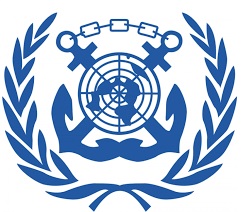 New rules coming into force from 2020 to curb pollution produced by the world’s ships are worrying everyone from OPEC oil producers to bunker fuel sellers and shipping companies. The regulations will slash emissions of sulphur, which is blamed for causing respiratory diseases and is a component of acid rain that damages vegetation and wildlife. But the energy and shipping industries are ill-prepared, say analysts, with refiners likely to struggle to meet higher demand for cleaner fuel and few ships fitted with equipment to reduce sulphur emissions. This raises the risk of a chaotic shift when the new rules are implemented, alongside more volatility in the oil market. “The reality is that the industry has already passed the date beyond the smooth transition,” Neil Atkinson, head of the oil industry and market division at the International Energy Agency (IEA), said in April. The rules, drawn up by the U.N. International Maritime Organisation (IMO), will ban ships using fuel with a sulphur content higher than 0.5 percent, compared to 3.5 percent now, unless a vessel has equipment to clean up its sulphur emissions. Any vessels failing to comply will face fines, could find their insurance stops being valid and might be declared “unseaworthy” which would bar them from sailing. The global shipping fleet now consumes about 4 million barrels per day (bpd) of high sulphur fuel oil, but about 3 million bpd of that demand will “disappear overnight”, according to the average market forecast calculated by Norway’s SEB Bank.
New rules coming into force from 2020 to curb pollution produced by the world’s ships are worrying everyone from OPEC oil producers to bunker fuel sellers and shipping companies. The regulations will slash emissions of sulphur, which is blamed for causing respiratory diseases and is a component of acid rain that damages vegetation and wildlife. But the energy and shipping industries are ill-prepared, say analysts, with refiners likely to struggle to meet higher demand for cleaner fuel and few ships fitted with equipment to reduce sulphur emissions. This raises the risk of a chaotic shift when the new rules are implemented, alongside more volatility in the oil market. “The reality is that the industry has already passed the date beyond the smooth transition,” Neil Atkinson, head of the oil industry and market division at the International Energy Agency (IEA), said in April. The rules, drawn up by the U.N. International Maritime Organisation (IMO), will ban ships using fuel with a sulphur content higher than 0.5 percent, compared to 3.5 percent now, unless a vessel has equipment to clean up its sulphur emissions. Any vessels failing to comply will face fines, could find their insurance stops being valid and might be declared “unseaworthy” which would bar them from sailing. The global shipping fleet now consumes about 4 million barrels per day (bpd) of high sulphur fuel oil, but about 3 million bpd of that demand will “disappear overnight”, according to the average market forecast calculated by Norway’s SEB Bank.
